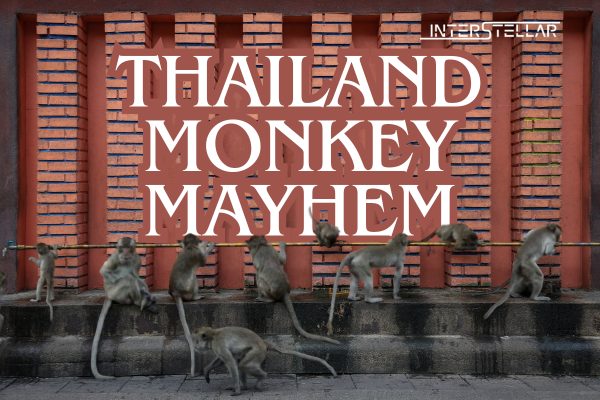Lopburi’s Monkey Mayhem: City Battles Overpopulation and Aggression
In Lopburi, a historic city in Thailand, residents are all too familiar with the sight of monkeys looting fruits from vehicles or swarming buildings. Known as “Monkey City,” Lopburi has long coexisted with its thousands of long-tailed macaques, which locals and tourists alike considered a charming aspect of the city. However, the pandemic disrupted this harmony, leading to a monkey mayhem and the residents are now struggling to manage.
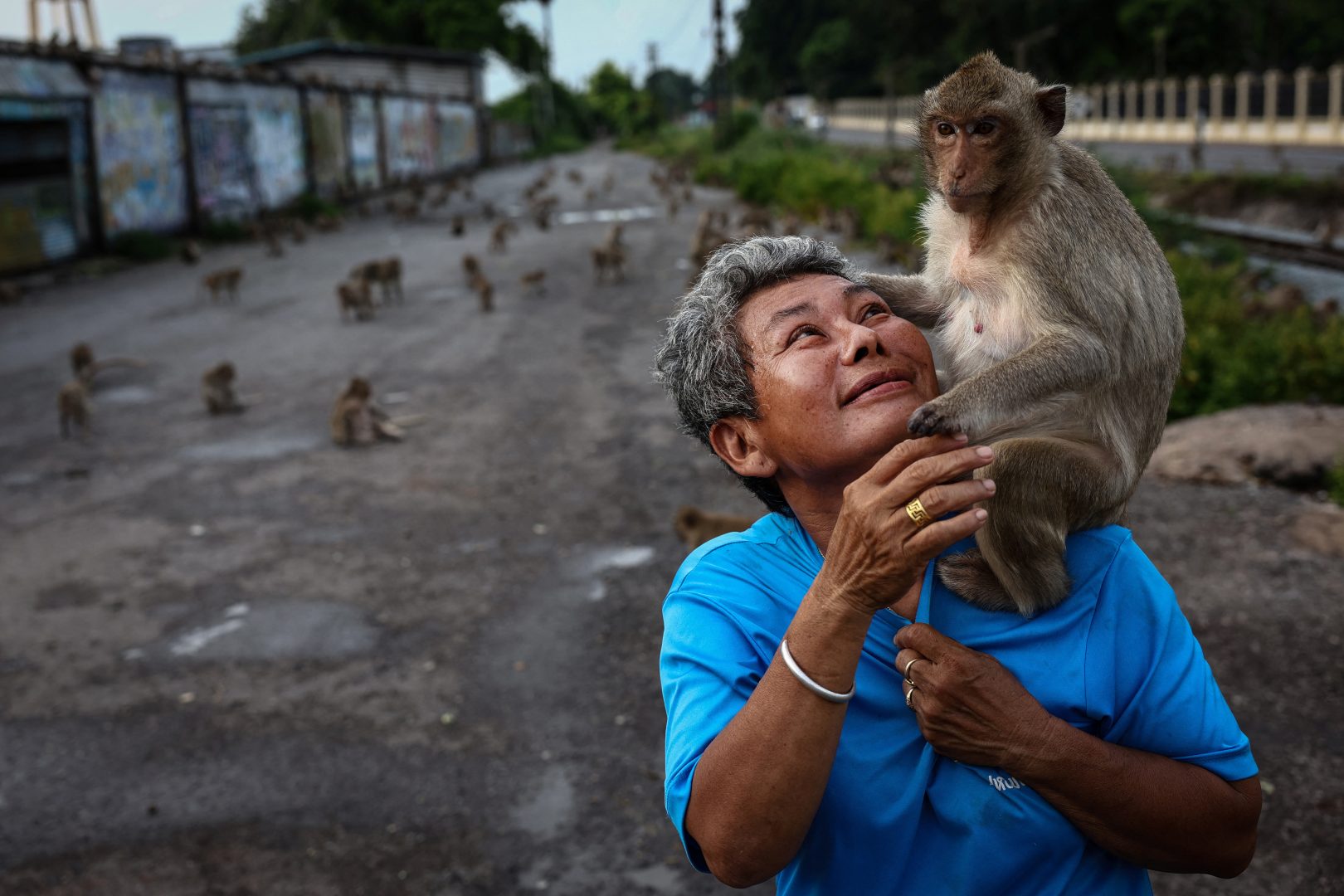
A Change in Behaviour Post-Pandemic
Before the COVID-19 lockdowns, Lopburi’s residents would feed the approximately 3,000 macaques living among them, even hosting an annual fruit feast for the animals. But during the pandemic, as tourism dwindled and food sources vanished, the monkeys’ behaviour shifted drastically. Once tourism resumed in 2022, Lopburi residents found that the primates had become more aggressive, taking over buildings and creating dangerous conditions for people.
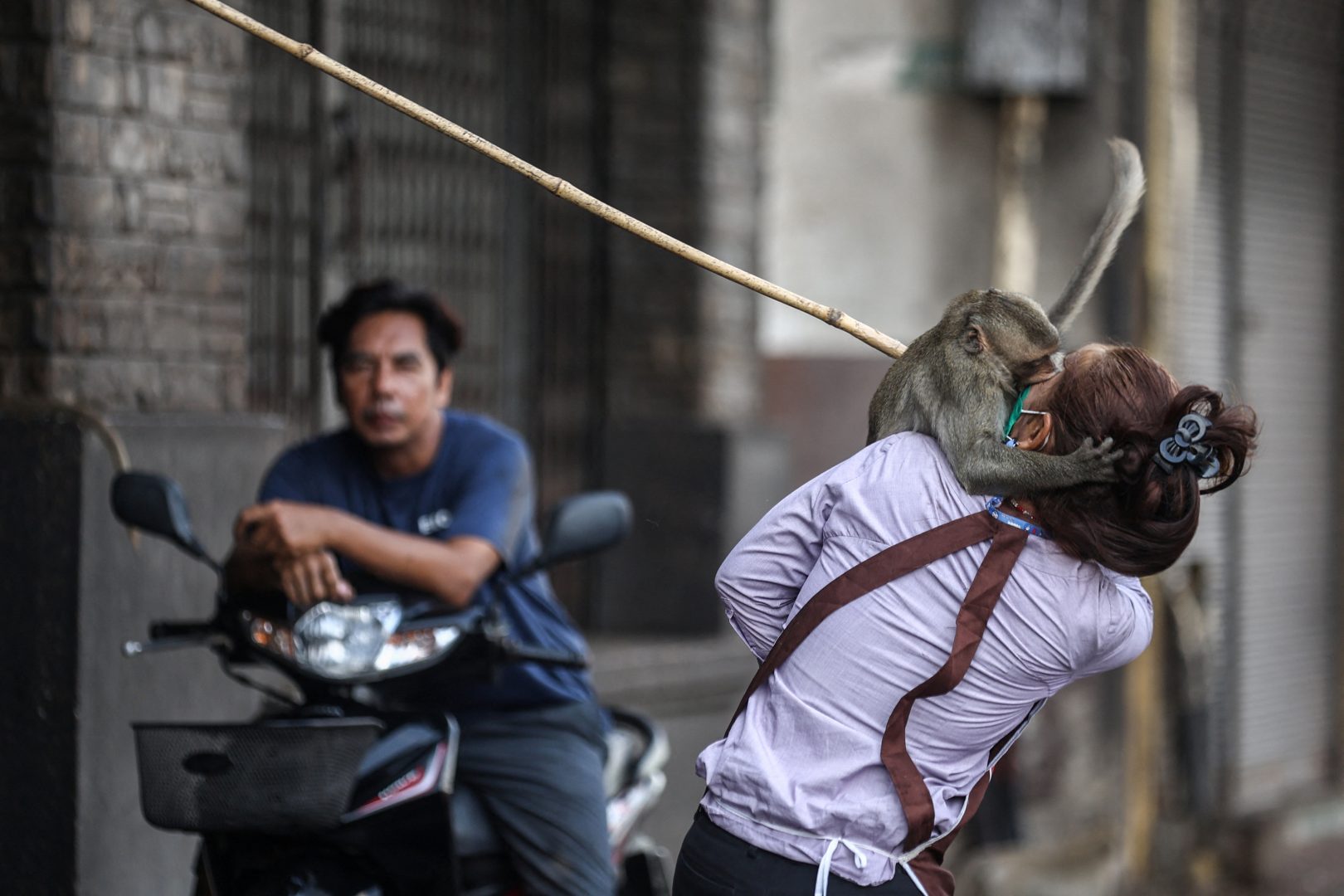
Without regular feeding from visitors, the monkeys resorted to looting, causing accidents, and even staging territorial brawls. “It wasn’t always like this,” said Jirat Buapromart, a long-time resident. “They are ready to steal anything they can from us.”
Government Actions to Control Monkey Populations
As complaints escalated, authorities began taking action in early 2024 to restore order. Armed with slingshots and traps, officials set out to capture unruly macaques, some of whom had caused such disturbances that locals had fortified their homes with metal bars for protection. By May, efforts intensified, including a push for sterilisation to control the monkey population.
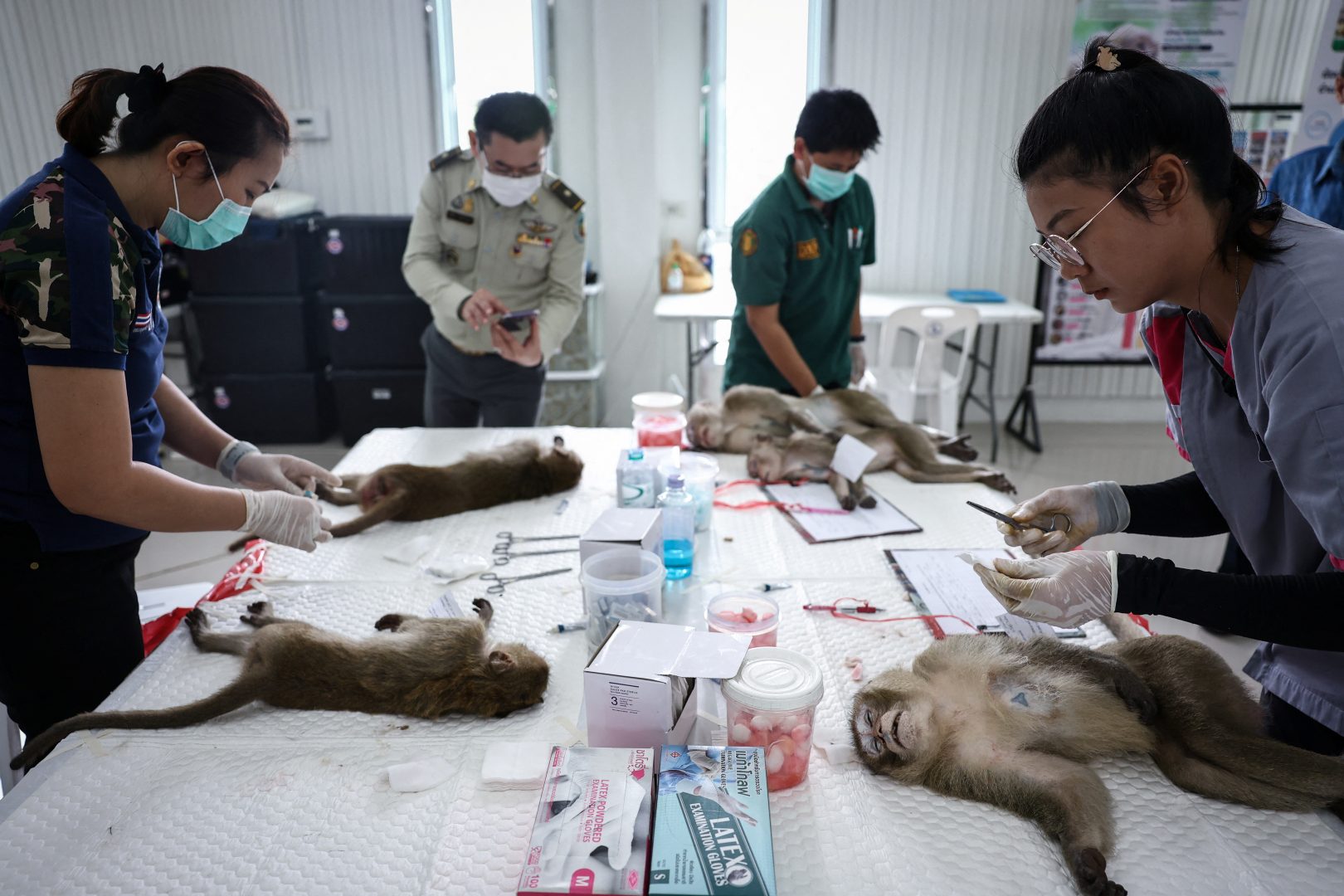
Senior veterinarian Patarapol Maneeorn from the Department of National Parks, Wildlife and Plant Conservation announced plans to spay 100% of the macaque population and move them to a designated, supervised area. By September, authorities had captured around 1,600 monkeys, bringing a semblance of calm back to Lopburi.
Divided Opinions and Calls for Compassionate Solutions
The mass capture of monkeys has sparked mixed reactions. Animal rights groups agree on the importance of controlling the monkey population but argue that placing them in cages is inhumane. “The monkeys are suffering because currently they’re in a cage that is not designed for them,” said Edwin Wiek, founder of the Wildlife Friends Foundation Thailand. He urged the government to provide additional funding for the Department of National Parks to ensure monkeys receive proper care.
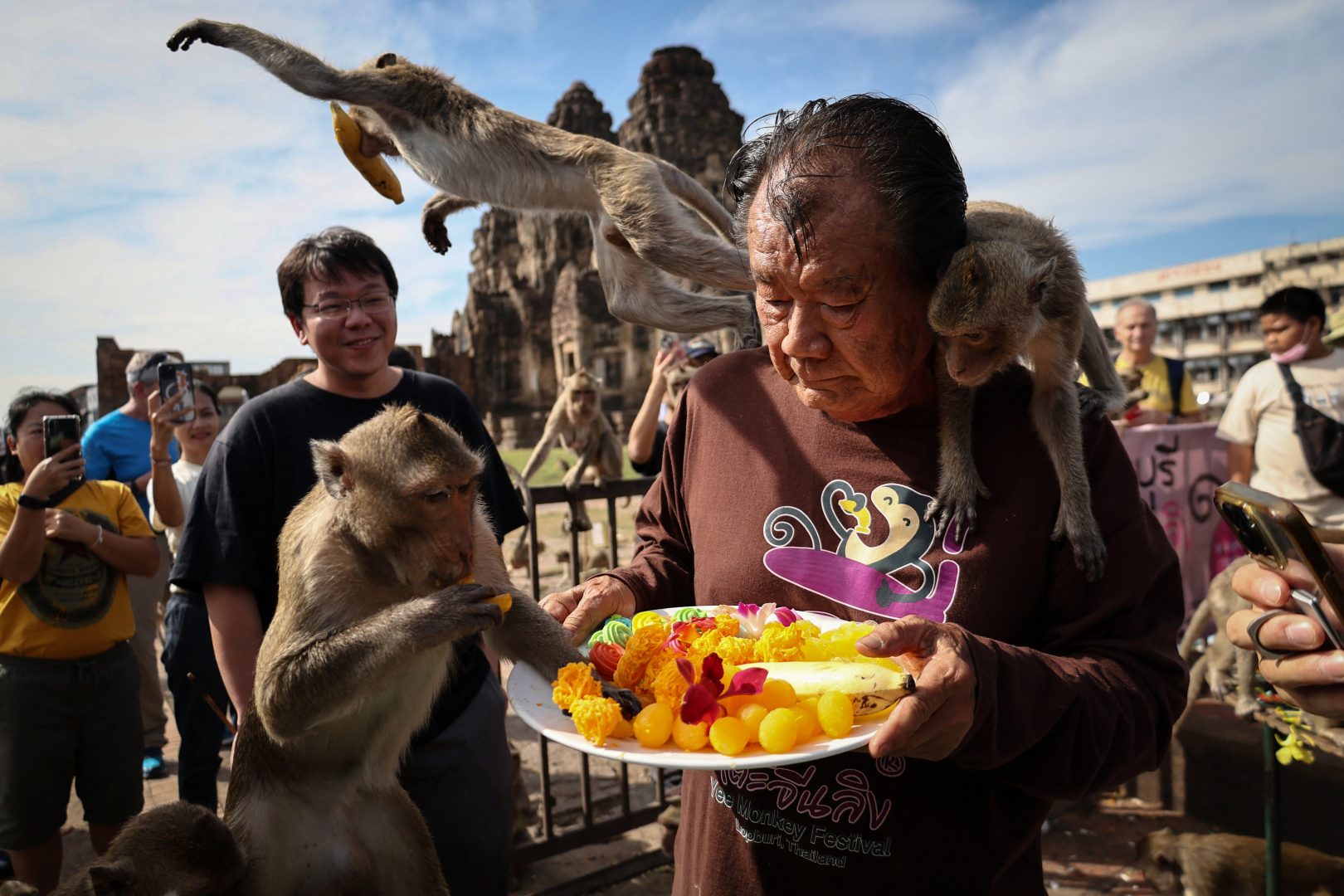
Locals like clockmaker Chalit Nithiwkram appreciate the newfound peace, noting that with fewer monkeys, customers are now more comfortable visiting his shop. However, others recognise the tourism value that monkeys bring to Lopburi. “We have to admit that the monkeys attract tourism. They’ve earned a massive revenue for Lopburi,” said Wisarut Somngam, a researcher with Ecoexist Society.
As the city finds relief from the daily disruptions, Lopburi residents and officials are now faced with the challenge of finding a balanced solution that preserves the city’s heritage and ensures the welfare of the macaques.
with inputs from Reuters




